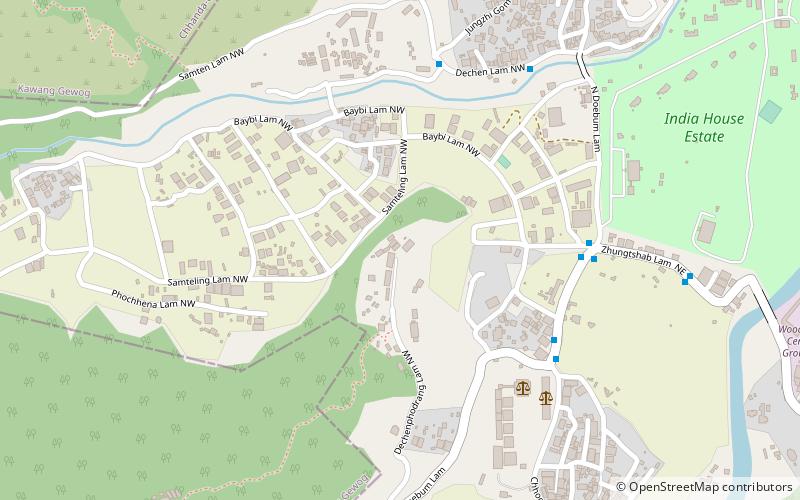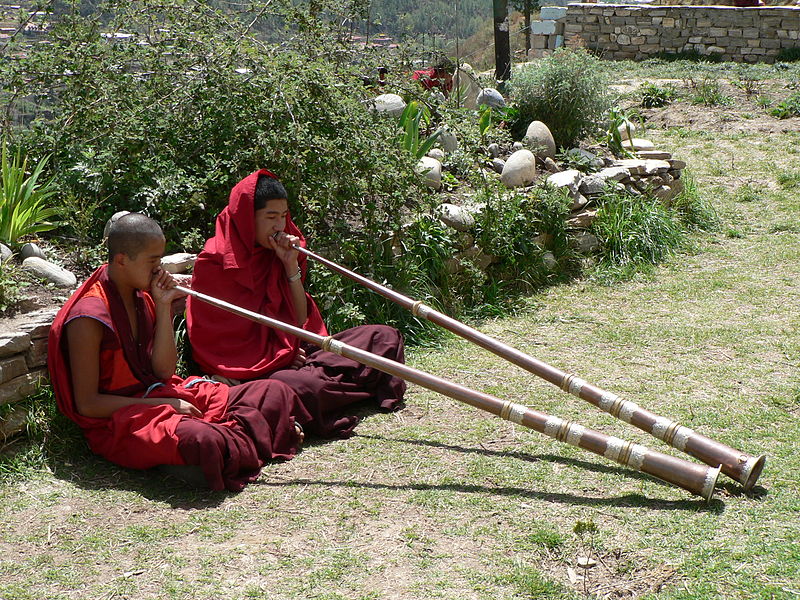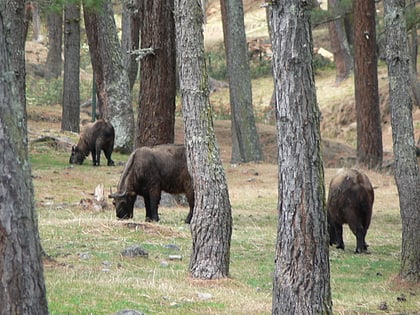Dechen Phodrang Monastery, Thimphu


Facts and practical information
Nestled atop a hill overlooking the bustling city of Thimphu, Bhutan, the Dechen Phodrang Monastery stands as a serene sanctuary and a testament to Bhutanese spiritual heritage. This historic monastery, whose name translates to "Palace of Great Bliss," dates back to the 12th century and has been a cornerstone of monastic education in Bhutan for centuries.
The monastery's strategic location offers a panoramic vista of Thimphu valley, providing visitors with a tranquil escape from the city's pace and a chance to immerse themselves in the spiritual ambiance of the site. Dechen Phodrang is not only a place of worship but also a monastic school where young monks receive their religious education, ensuring the continuation of Bhutan's rich Buddhist traditions.
The architecture of Dechen Phodrang Monastery is a splendid example of traditional Bhutanese design, featuring classic sloping roofs, whitewashed walls, and intricately carved woodwork. Inside, the monastery houses a collection of historical Bhutanese artifacts including 12th-century paintings and statues that are of significant cultural and religious value.
Visitors to the monastery can witness the daily life of monks, their meditation practices, and religious rituals. It provides a unique opportunity to learn about Bhutanese culture, Drukpa Kagyu Buddhist teachings, and the importance of monastic life in the country. The monastery also occasionally hosts festivals and community events, further integrating its spiritual role with the social fabric of Thimphu.
Open to the public, the monastery invites those who seek a moment of peace and those interested in the spiritual heritage of Bhutan. While access to certain areas may be restricted to preserve the sanctity of the space, guests are welcome to explore the grounds and soak in the tranquil atmosphere.
Dechen Phodrang Monastery – popular in the area (distance from the attraction)
Nearby attractions include: Changlimithang Stadium, Centenary Park, Simtokha Dzong, Memorial Chorten.











